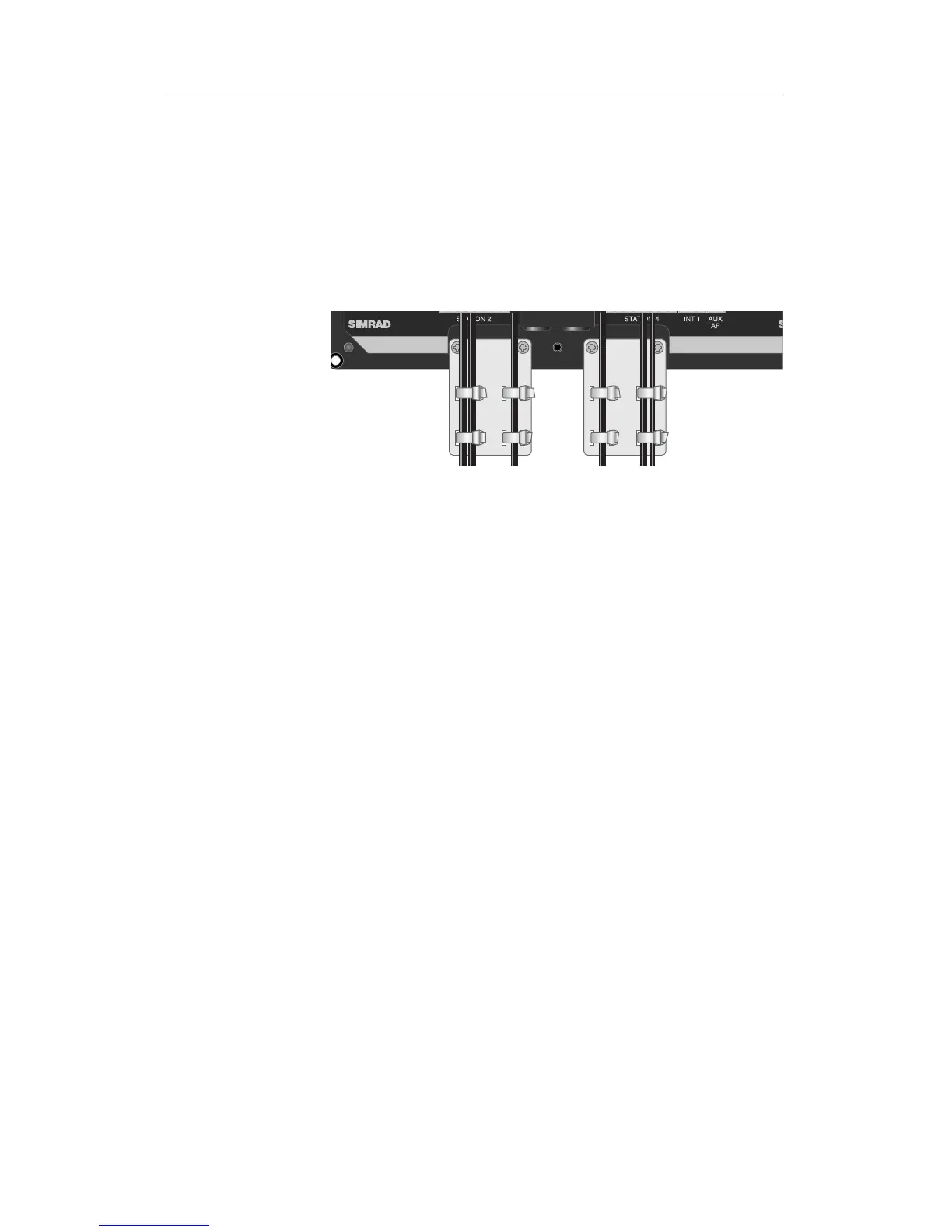RS86/RS87 VHF
74
E04819 Issue 1.0
7.2.11 Cable strain relief
Once all the cables have been run to the appropriate peripherals
and connected to the transceiver unit, they should be secured to
ensure that they are not snagged or exposed to excess strain.
Screw the strain relief tabs to the cable exit port on the trans-
ceiver unit using the screws supplied and secure the cables to
the tabs using tie wraps as shown (Fig 7.16).
Replace the terminal cover and secure by tightening the retain-
ing screw.
7.3 Antenna installation
The most important factor in the performance of the radio will
be the quality and positioning of the antenna. Most recorded
problems with VHF radios are related to poor antenna siting,
faulty cabling, poor quality cable joints, and low voltage supply.
Even a VHF as highly advanced as the RS86/RS87 cannot
compensate for these factors. Therefore, if replacing an existing
VHF installation, it is important that the antenna is thoroughly
checked for any faults or damage before use.
As the range of VHF signals are governed by line of sight (see
section 8.3), the antenna should be placed as high as possible,
while remaining clear of any metallic objects that could influ-
ence the resonance of the antenna.
The most popular antennas for marine use are 1 m (3 ft 3 in)
long. On sailboats these are usually mounted on the masthead,
where the length of the antenna keeps it clear from the naviga-
tion lights and windvanes, etc. This type of antenna can also be
mounted on the cockpit roof or garage of powerboats.
Longer whip antennas are recommended for larger boats. These
radiate the same total power as smaller antennas, but concen-
trate it into a narrower beam, which is advantageous on a tall
mast at extreme range where concentrating the available power
into a narrow horizontal beam becomes more important.
Fig 7.16 - Cable strain relief
